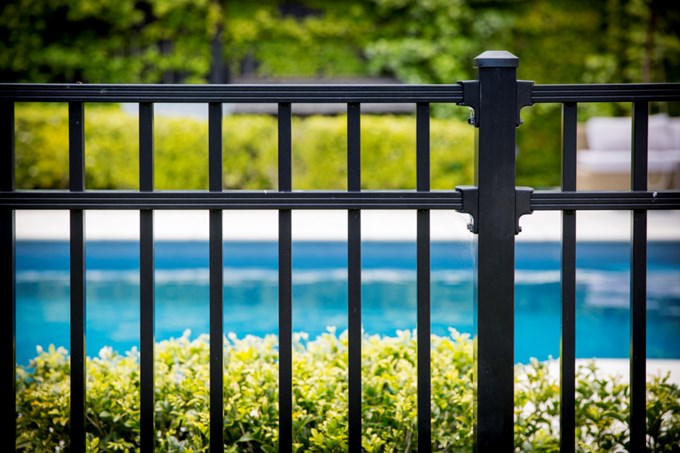Auckland Council is urging pool owners to get their safety checks in place to prevent drownings.
An average of three preschoolers die in home pool drownings in New Zealand every year, and councils around the country are working to get this number to zero.
The leading causes of preschool children drowning in pools are unsupervised access to pools through faulty gates and barriers, ladders left against the pool and gates propped open, and small portable pools remaining full of water without supervision or a complying barrier.
Inspections save lives
More than 30,000 pools are registered with Auckland Council. All pools require safety inspections every three years, and the council urges pool owners to carry out their own maintenance and inspections more regularly, to ensure ongoing safety.
Jeff Fahrensohn, who manages Auckland Council’s pool inspection teams, says, “Since inspections started, child drownings in New Zealand have dropped from 12 to about three per year.”
Fahrensohn says over 40 per cent of the inspections fail because of basic lack of maintenance, so it’s important that pool owners get out and check their fencing.
The biggest causes of inspection failures are faulty gates, and climbable objects, such as pots and garden furniture, too near the pool fence.
Pool area safety checklist
Check your pool fencing using this simple checklist:
- Gates must self-close and self-latch. Check that the hinge and springs are properly tensioned. It is important the gate can close and latch from any open position.
- Safety latches on the outside of the fence must be at least 1.5m high.
Gaps underneath your fence and between vertical rails must be less than 10cm. - Gates and fences/barriers must be at least 1.2m high. If you have any permanent objects within 1.2m of the pool fence, they must be removed or the fencing height increased.
- Climbable objects (such as trees, playground equipment, tables) must be at least 1.2m from the fence. Remove these items or trim climbable branches now.
- Don’t prop doors and gates open.
- Ladders used to access above-ground pools should be removed when the pool is not being used.
Find our full inspection checklist and safety videos online.
Portable pools
With temperatures soaring many families will be eyeing up a temporary pool – some may already be wrapped and under the Christmas tree.
As appealing and economical as these are, they still come with responsibilities. Depending on the depth they may require fencing and should always be emptied when not in use.
Above all, active supervision at all times is crucial. Parents and caregivers are advised to think ahead about strategies to reduce gaps in supervision.
How to be a backyard lifeguard
Councillor Linda Cooper, Chair of the Regulatory Committee, says that whether it’s a fully-fenced inground pool, a plastic clamshell, or an inflatable paddling pool, we need to keep a constant eye on our kids around water.
“We want people to have an awesome summer in their pools. We’re encouraging parents and caregivers to be a lifeguard in their own backyard to ensure they have a safe summer with whanāu and friends,” she says.
- Active supervision is crucial: within sight and reach, without distraction.
- Have a dedicated person whose sole responsibility is watching the children, particularly during busy periods when there is a lot going on such as during barbecues and food prep.
- Set and discuss safe water-play rules with your children, such as "no going near water unless they have an adult with them."
- Have a plan: what if you need to take one child to the toilet, or you need to run inside to the oven?
- Be ready to respond in an emergency. Learn child CPR.
- If you have an inflatable pool, ensure it is fully inflated and filled. This will help prevent the sides collapsing if a toddler leans on it.
- Check home pools and other bodies of water first if a child is missing.
- Identify potential water hazards and provide barriers to eliminate or minimise risk, especially if you are on holiday or visiting an unfamiliar location.
- Remove toys and other fun items from the pool that children might want to get at.


